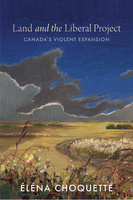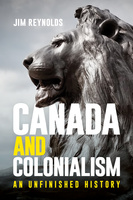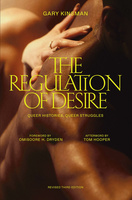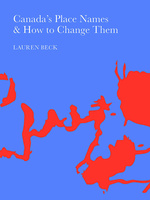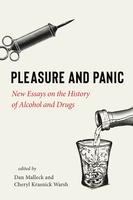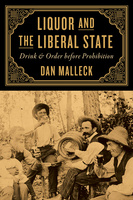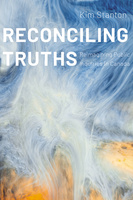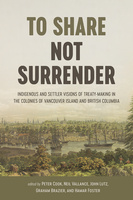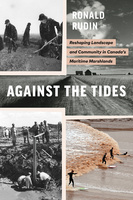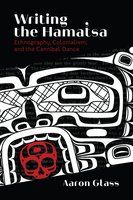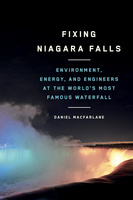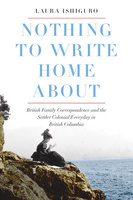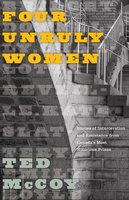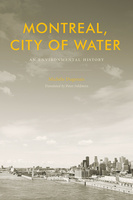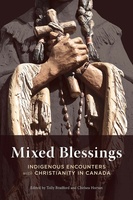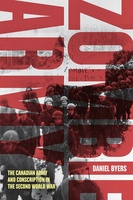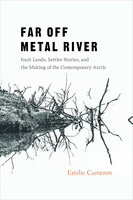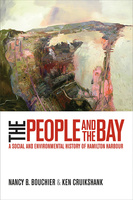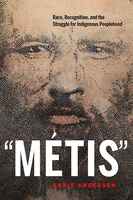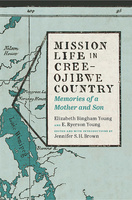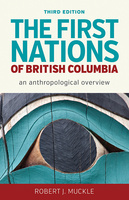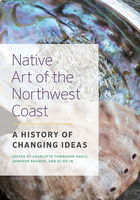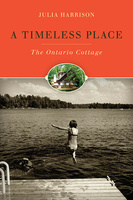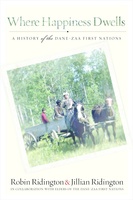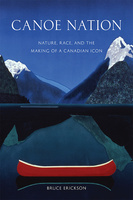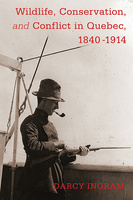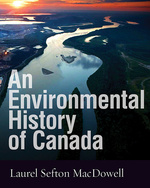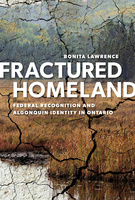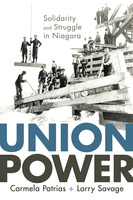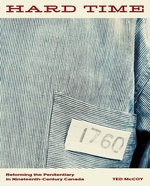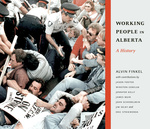Land and the Liberal Project
Canada’s Violent Expansion
Land and the Liberal Project explores the “improving” ideas that informed the expansion of Canada from coast to coast, exposing the justifications for state violence and appropriation of Indigenous territory, thus challenging our assumptions about Canadian sovereignty.
Canada and Colonialism
An Unfinished History
Canada and Colonialism presents the history Canadians must reckon with before decolonization is possible, from the nation’s establishment as a settler colony to the discriminatory legacies still at work in our institutions and culture.
The Regulation of Desire, Third Edition
Queer Histories, Queer Struggles
Pleasure and Panic
New Essays on the History of Alcohol and Drugs
Pleasure and Panic illustrates how attitudes toward drug and alcohol consumption are complicated by the politics, economics, and culture of their times.
Liquor and the Liberal State
Drink and Order before Prohibition
Cultural pastime, profitable industry, or harmful influence on the nation? Liquor and the Liberal State explores government approaches to drink and drinking in the late nineteenth and early twentieth centuries.
Reconciling Truths
Reimagining Public Inquiries in Canada
Reconciling Truths is a forthright examination of commissions of inquiry that demonstrates the need for astute leadership and an engaging process if they are to lead to meaningful change.
To Share, Not Surrender
Indigenous and Settler Visions of Treaty Making in the Colonies of Vancouver Island and British Columbia
To Share, Not Surrender presents multiple views and lived experience of the treaty-making process and its repercussions in the Colonies of Vancouver Island and British Columbia, and publishes, for the first time, the Vancouver Island Treaties in First Nations languages.
Against the Tides
Reshaping Landscape and Community in Canada’s Maritime Marshlands
Against the Tides tells the compelling story of the rehabilitation of the Maritime marshlands, a project that reshaped not only the landscape of the Bay of Fundy region but the communities that depended on it.
Writing the Hamat'sa
Ethnography, Colonialism, and the Cannibal Dance
Writing the Hamat̓sa critically surveys more than two centuries worth of published, archival, and oral sources to trace the attempted prohibition, intercultural mediation, and ultimate survival of one of Canada’s most iconic Indigenous ceremonies.
A Bounded Land
Reflections on Settler Colonialism in Canada
In this beautifully crafted and written volume, Canada’s preeminent historical geographer traces how Canada’s geographical limitations have shaped the nature of its settler societies – from first contacts, to dispossession, to our current age of reconciliation.
The Nuclear North
Histories of Canada in the Atomic Age
The Nuclear North investigates Canada’s place in the grey area between nuclear and non-nuclear to explore how this has shaped Canadians’ understanding of their country and its policies.
Fixing Niagara Falls
Environment, Energy, and Engineers at the World’s Most Famous Waterfall
Long considered a natural wonder, the world’s most famous waterfall is anything but. Fixing Niagara Falls reveals the engineering and politics behind the transformation of Niagara Falls.
War Junk
Munitions Disposal and Postwar Reconstruction in Canada
War Junk recounts the surprising history of leftover military munitions and supplies, revealing their complex political, economic, social, and environmental legacies in postwar Canada.
Canada and Ireland
A Political and Diplomatic History
This intriguing study sheds light on Canada’s relationship with Ireland, revealing the origins, trials, and successes of the intimate and at times turbulent connection between the two countries.
Challenge the Strong Wind
Canada and East Timor, 1975–99
Challenge the Strong Wind recounts the story of Canadian policy toward East Timor from the 1975 invasion to the 1999 vote for independence, demonstrating that historical accounts need to include both government and non-governmental perspectives.
The Nature of Canada
These captivating reflections on the history of our environment and ourselves will make you think differently not only about Canada’s past but also about our future.
Nothing to Write Home About
British Family Correspondence and the Settler Colonial Everyday in British Columbia
The first substantial study of family correspondence and settler colonialism, Nothing to Write Home About elucidates the significance of trans-imperial intimacy, epistolary silence, and the everyday in laying the foundations of settler colonialism in British Columbia.
Four Unruly Women
Stories of Incarceration and Resistance from Canada’s Most Notorious Prison
Filled with stories of pain, regret, and resistance, this chilling account of how four women survived their time at Kingston Penitentiary stands as an indictment of the idea that prisons and punishment are society’s answer to crime.
Montreal, City of Water
An Environmental History
Montreal, City of Water investigates the development of the city over two centuries, tracing the relationship between the city’s inhabitants and the waterways that ring its island and flow beneath it in underground networks.
Mixed Blessings
Indigenous Encounters with Christianity in Canada
This diverse and cutting-edge collection offers fresh insights into the complex and charged subject of Indigenous encounters with Christianity in Canada from the 1600s to the present day.
Zombie Army
The Canadian Army and Conscription in the Second World War
This book tells the story of more than 150,000 Canadians who were subjected to conscription during the Second World War, and how their experiences shaped and were shaped by the decisions of the generals and politicians who guided the country’s war effort.
Fragile Settlements
Aboriginal Peoples, Law, and Resistance in South-West Australia and Prairie Canada
Fragile Settlements compares the historical processes through which British colonial authority was asserted over Indigenous people in southwest Australia and prairie Canada from the 1830s to the early twentieth century.
Far Off Metal River
Inuit Lands, Settler Stories, and the Making of the Contemporary Arctic
Drawing on the story of the 1771 Bloody Falls massacre, human geographer Emilie Cameron explores the relationship between stories and colonialism, challenging readers to examine their perceptions of the contemporary Arctic and its peoples.
The People and the Bay
A Social and Environmental History of Hamilton Harbour
This engaging history brings to life the personalities and power struggles that shaped how Hamiltonians used their harbour and, in the process, invites readers to consider how moral and political choices being made about the natural world today will shape the cities of tomorrow.
Mission Life in Cree-Ojibwe Country
Memories of a Mother and Son
The previously unpublished memoirs of mother and son from a prominent missionary family living near Norway House in the early 1900s.
The First Nations of British Columbia, Third Edition
An Anthropological Overview
The First Nations of British Columbia is a concise and accessible introduction to histories, cultures, and issues of the First Peoples of BC.
Native Art of the Northwest Coast
A History of Changing Ideas
A remarkable volume that makes accessible for the first time and in one place a broad selection of more than 250 years of writing on Northwest Coast Native art.
A Timeless Place
The Ontario Cottage
An exploration of the personal, social, and cultural meanings of the iconic Canadian cottage.
Where Happiness Dwells
A History of the Dane-zaa First Nations
This innovative blend of oral history and anthropological commentary documents how the Dane-zaa survived and flourished for millennia in northern BC.
Canoe Nation
Nature, Race, and the Making of a Canadian Icon
An exploration of the canoe and its role in Canadian culture, nature, and colonial past.
Keeping Canada British
The Ku Klux Klan in 1920s Saskatchewan
This provocative book provides a new interpretation of the Ku Klux Klan in 1920s Saskatchewan, arguing that it should not be portrayed merely as an irrational outburst of intolerance but as a slightly more extreme version of mainstream opinion that wanted to keep Canada British.
Wildlife, Conservation, and Conflict in Quebec, 1840-1914
A revealing look at the origins of modern wildlife conservation in Quebec.
An Environmental History of Canada
This text traces the interaction between humans and the Canadian landscape, from the arrival of the first peoples to our current environmental crisis.
Fractured Homeland
Federal Recognition and Algonquin Identity in Ontario
An examination of the struggle for identity and nationhood among non-status Algonquin during the negotiation of a major comprehensive land claim.
Union Power
Solidarity and Struggle in Niagara
Charts the development of the region's labour movement from the early nineteenth century to the present.
Hard Time
Reforming the Penitentiary in Nineteenth-Century Canada
Tracing the rise and evolution of Canadian penitentiaries in the nineteenth century, this book examines the concepts of criminality and rehabilitation, the role of labour in penal regimes, and the problem of violence.
Try to Control Yourself
The Regulation of Public Drinking in Post-Prohibition Ontario, 1927-44
A fascinating history that challenges common assumptions of how the Ontario government attempted to regulate licensed public drinking after the repeal of prohibition.
Working People in Alberta
A History
A political and economic analysis of the history of working people in Alberta.

